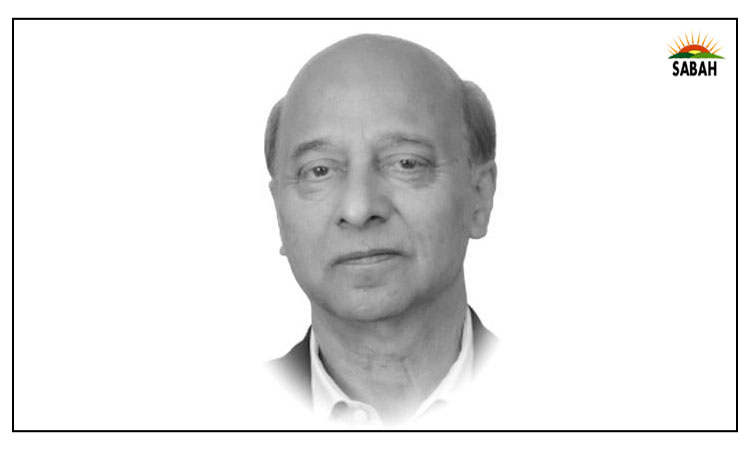China and Pakistan: contrasting stories in integrity and leadership ….. Imtiaz Gul
Since the 1949 revolution under Chairman Mao Zedong, the Chinese leadership found the key to social peace and economic progress: turning the burden of a big population into an asset. While cognisant of the headwinds from the West, the leaders took up the challenge of honing the huge population — spread over diverse regions — into a productive nation.
Xun Zi (313 BC–238 BC), the famous philosopher from the Warring States period, is quoted to have said: “The Emperor is the boat and the people are the water. Water can carry the boat, but also capsize the boat.”
This saying by Xun seems to have inspired the people-centric focus of the Communist Party. Shortcomings at the social level and a politically constrained environment notwithstanding, the national spirit for peace, development and innovation has taken China to new levels.
The instrument for inculcating the spirit of China and channeling collective energies for economic development was the Communist Party, which cuts across all shades of life as well as regions. A uniform governance structure — from the canton to the province and to the centre in Beijing — is all guided also by ancient Chinese wisdom and the modern revolutionary zeal that has morphed into the China Spirit.
Particularly since the arrival of President Xi Jinping at the top, the China Spirit has become more pronounced, with a razor focus on corruption and development.
In January this year, Xi proclaimed an “overwhelming victory” against corruption. The anti-corruption drive that he launched in 2012 seems to have become a part of the system; the past 10 years have seen the purging of nearly 5 million, mostly party and military officials. China’s score on the Corruption Perceptions Index compiled by Transparency International has improved six points to 45 — a point above India over the same period. Ironically, the United States has declined four points to 69.
President Xi and the party, of course, built the national development agenda on a strong foundation — first in the post-1949 revolution years under Chairman Mao and then the strong reforms process under Deng Xiaoping. It has been a long struggle — against heavy odds that the country faced from the West. It also forced it to develop and devise its own socio-economic system — supported by technological progress.
The most striking feature of the rise of China, nonetheless, is the integrity of its big leaders.
None of the veteran leaders — Mao Zedong, Zhou Enlai, Deng Xiaoping, Hu Jintao — carries the stigma of corruption or abuse of power for personal gains.
The current strongman, Xi Jinping, often projected by the Western media as an autocrat ruling China with an iron hand, stands even taller than some of the past leaders. Under his presidency, China has made breathtaking, unprecedented strides in economy, finance and technological development.
Despite boasting undiluted absolute power in a system that is uniquely democratic in the Chinese way, Xi has exuded the image of a committed nationalist leader who draws authority from immaculate integrity.
Chinese people, in general, associate impeccable integrity and unquestionable character with leaders who make it to the top seven slots — the Politburo — including the secretary-general of the Communist Party of China (CPC). They are considered demigods who rise through the ranks from the cantons to the highest positions. The evaluation and promotion system filters only the best and unquestionable leaders to the top slots. It is hence extremely rare to point fingers at them for any political or financial wrongdoing or abuse of power.
CPC cadres call it democracy with Chinese characteristics that lends the system legitimacy and popular buy-in across all shades of life.
Contrast this with Pakistani democracy. It comes across as more than a sham if viewed against how hard the Zardaris, Bhuttos, Sharifs and the Maulanas have worked to stay in power. The ballooning assets at home and abroad of these political luminaries and the politics of patronage only make a mockery of their claims on democracy and honest politics.
During his first stint as president, Asif Ali Zardari visited China more than a dozen times — often to the displeasure of the senior Beijing leadership.
After a couple of visits, they advised him to go to the provinces and see the transformation there. This was a way of telling him off Beijing. Both Sharifs did the same with their frequent yatra to China. But what did they learn to apply at home and transform their fiefdom that is called Pakistan?
While glancing through Larkana, Nawabshah, Karachi, Hyderabad, Lahore, Multan, or Bahawalpur, one wonders what knowledge Zardari or the Sharifs acquired in China.
Since March 2022, these leaders toiled extra hard to qualify for the top slots such as the President, PM and Foreign Minister. They indulged in, or endorsed, actions that have been apolitical, undemocratic, and often unconstitutional. This mind-boggling charade has had irreparable consequences for the country — both at home and abroad.
The current Pakistani leadership has been a suspect in the eyes of the West anyway for its self-serving transactional instincts. It has now earned the ire of Chinese officials and academics as well — losing credibility like never before. The latest episode was the big delegation to Beijing that Shehbaz Sharif led — all attired in executive suits as if attending a business and investment conference. The non-commitment on ML1 (rail track project), the insistence on first settling the financial matters of the Chinese power companies, and the unusually tough talk on security underscored the Chinese wariness with a Pakistani elite who refuses to reform and has a demonstrated disregard for financial discipline.
Courtesy Express Tribune












